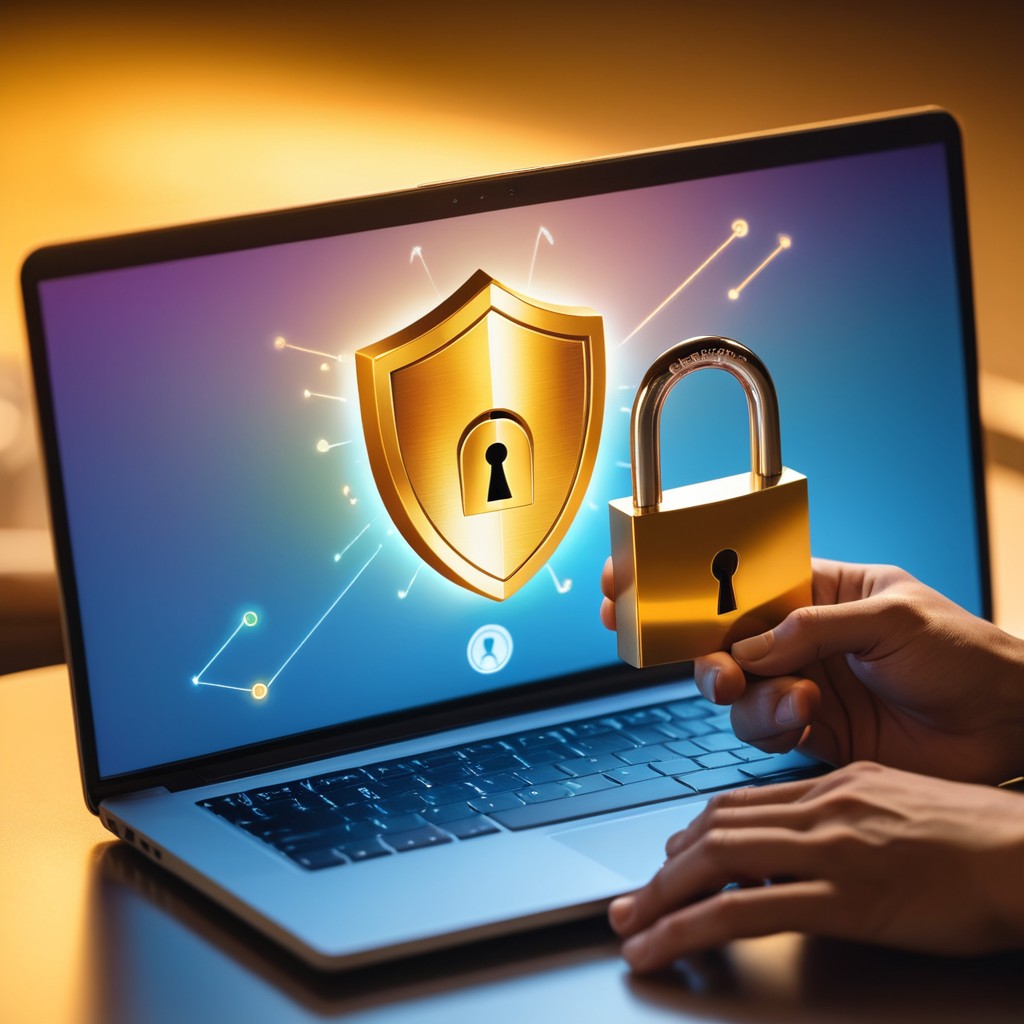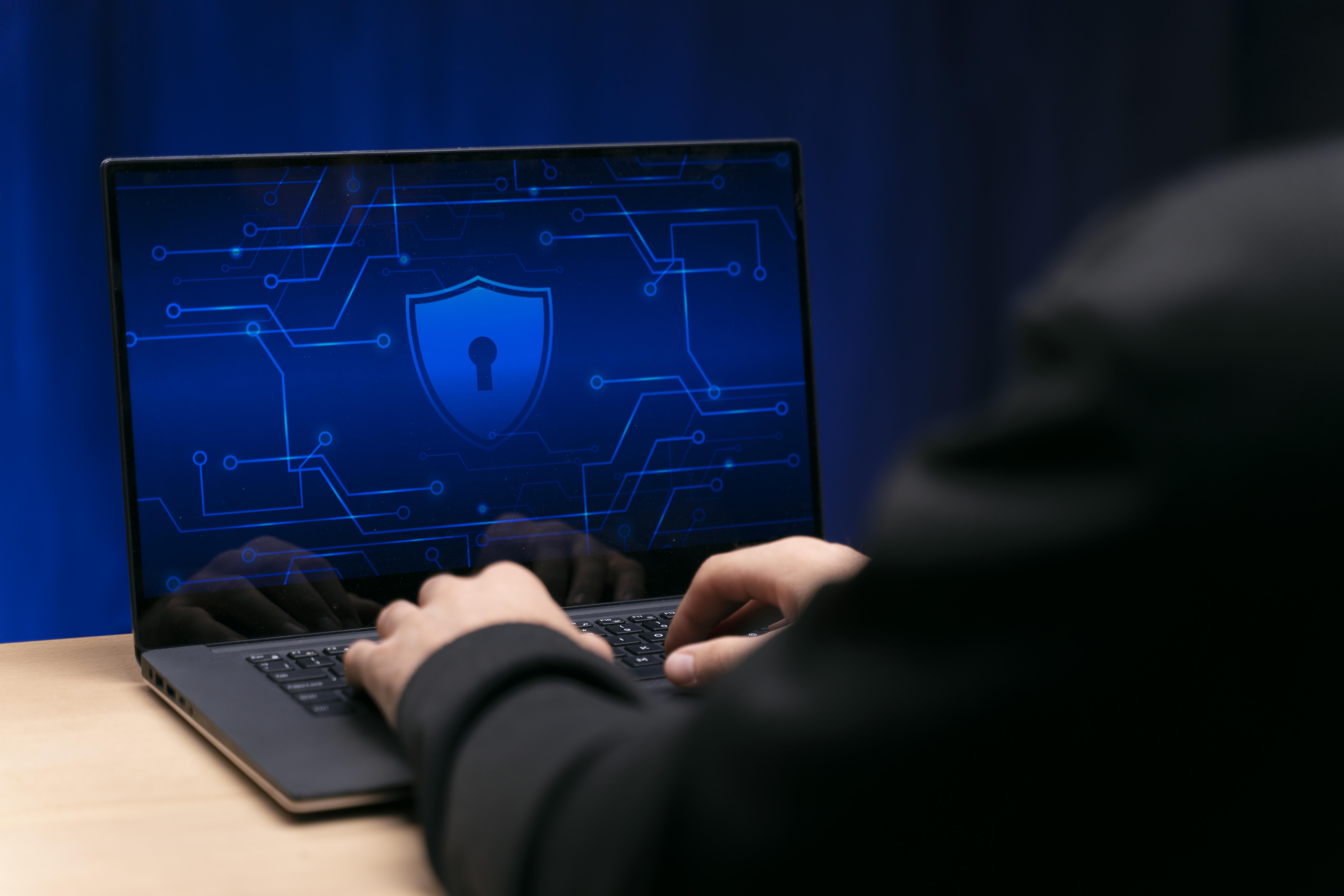
Welcome to the world of Virtual Private Networks (VPNs), your gateway to a more secure and private online experience. Whether you're a seasoned internet user or just starting to explore the digital landscape, understanding VPNs can be empowering. This blog post dives deep into everything VPN-related, from the basics of how they work to their benefits, drawbacks, and various use cases.
What is a VPN?
A VPN stands for Virtual Private Network. It essentially creates a secure tunnel between your device (computer, phone, tablet) and the internet. Imagine a regular internet connection as an open highway, where anyone can see what information you're sending and receiving. A VPN encrypts your data, transforming it into a scrambled code unreadable by anyone snooping on the highway. This encryption safeguards your online activity, making it virtually impossible for third parties to track your browsing habits, steal sensitive information, or monitor your location.
How Does a VPN Work?
Here's a simplified breakdown of the magic behind a VPN:
- Connecting to a VPN Server: You initiate a connection to a VPN provider's server located anywhere in the world.
- Creating the Secure Tunnel: The VPN software on your device establishes an encrypted connection with the chosen server.
- Data Encryption: All your internet traffic – emails, messages, downloads, browsing activity – gets encrypted before leaving your device.
- Data Transmission: The encrypted data travels securely through the internet tunnel to the VPN server.
- Decryption and Onward Journey: The VPN server decrypts the data and sends it out to its final destination on the internet.
- Response Encryption: The response from the website or service you're accessing gets encrypted and travels back through the tunnel to your device.
- Decryption on Your Device: The VPN software on your device decrypts the incoming data, allowing you to see the information as usual.
Benefits of Using a VPN:
VPNs offer a multitude of advantages for internet users:
- Enhanced Security: Encryption is the heart of a VPN's security. By scrambling your data, you protect yourself from prying eyes on public Wi-Fi networks, hackers, and even your internet service provider (ISP).
- Increased Privacy: VPNs mask your IP address, which acts as a unique identifier for your device on the internet. With a hidden IP, websites and online services can't pinpoint your exact location or track your online activity.
- Geo-Restrictions Bypass: Certain websites and streaming services restrict access based on geographical location. A VPN allows you to connect to a server in a different country, giving you the appearance of being located there and potentially unlocking geo-restricted content.
- Public Wi-Fi Safety: Public Wi-Fi hotspots are notoriously insecure. A VPN encrypts your data on these networks, shielding you from potential man-in-the-middle attacks where hackers intercept your information.
- Censorship Circumvention: Some countries restrict access to certain websites or online content. A VPN can help you bypass such censorship by connecting you to a server in a country with open internet access.
Drawbacks and Considerations:
While VPNs offer significant benefits, it's important to be aware of some potential drawbacks:
- Speed Slowdown: Encryption and decryption processes can slightly slow down your internet connection speed. However, this slowdown is usually minimal and may not be noticeable for everyday browsing.
- Logging Policies: Be mindful of a VPN provider's logging policies. Some providers might log your activity, potentially compromising your privacy. Choose a VPN with a strict no-logs policy.
- Limited Server Availability: Free VPNs often have limited server locations, restricting your options for bypassing geo-restrictions. Paid VPNs typically offer a wider range of server options.
- Legality in Certain Regions: A small number of countries have restrictions on VPN usage. Always check the laws and regulations in your region before using a VPN.
Choosing the Right VPN Provider:

With a plethora of VPN providers available, selecting the right one can be overwhelming. Here are some key factors to consider:
- Security and Privacy: Look for a provider with robust encryption protocols (like OpenVPN or IKEv2) and a clear no-logs policy.
- Server Network: Choose a provider with a diverse server network in various locations to suit your needs for accessing geo-restricted content or simply enhancing privacy.
- Speed and Performance: Look for a provider with a reputation for fast speeds and minimal connection drops.
- Cost: Free VPNs may have limitations, while paid VPNs often offer more features and better performance. Consider your budget and needs when making a decision.
- Device Compatibility: Ensure the VPN provider offers software compatible with your devices (Windows, Mac, Android, iOS, etc.). Some providers even offer router compatibility for whole-home VPN protection.
- Customer Support: Reliable customer support is crucial in case you encounter any technical difficulties. Look for providers with 24/7 live chat or phone support options.
Popular Use Cases for VPNs:
Now that you understand the core functionalities of VPNs, let's explore some of the most common use cases:
- Enhancing Security on Public Wi-Fi: Public Wi-Fi networks are a breeding ground for cyberattacks. Using a VPN on public Wi-Fi encrypts your data, preventing hackers from stealing your login credentials, credit card information, or other sensitive data.
- Bypassing Geo-Restrictions: Travelers and streaming enthusiasts often use VPNs to access geo-restricted content. Connecting to a VPN server in a different country allows you to unblock websites, streaming services, or online games unavailable in your region.
- Protecting Online Privacy: VPNs shield your online activity from prying eyes, including your ISP, advertisers, and government agencies. This is particularly beneficial for users concerned about online tracking and data collection practices.
- Censorship Circumvention: In countries with internet censorship, VPNs can be a lifeline to access blocked websites and information. By connecting to a server in a free and open internet country, you can bypass censorship restrictions.
- Torrenting Anonymously: While not inherently illegal, torrenting can raise concerns about copyright infringement. Using a VPN while torrenting can mask your IP address, adding a layer of anonymity. However, be aware of your local laws and regulations regarding torrenting.
Beyond the Basics: Advanced VPN Features:

While core functionalities remain similar across providers, some VPNs offer advanced features that might cater to specific user needs:
- Split Tunneling: This feature allows you to choose which traffic gets routed through the VPN and which uses your regular internet connection.
- Double VPN: For ultimate security, some providers offer double VPN connections, where your data gets encrypted twice for an extra layer of protection.
- Dedicated IP Address: A dedicated IP provides a static IP address unique to you, helpful for specific online activities like accessing remote servers.
- Kill Switch: This automatic safety net ensures your internet connection gets cut off if the VPN connection drops unexpectedly, preventing accidental data leaks.
Free vs. Paid VPNs:
The debate between free and paid VPNs is a constant topic. Here's a breakdown to help you decide:
- Free VPNs: They might seem attractive initially, but often come with limitations like:
- Data Caps: Free VPNs often restrict the amount of data you can use per month.
- Limited Server Options: Free VPNs typically have a limited selection of server locations, hindering geo-restriction bypass.
- Slower Speeds: Free VPNs may prioritize free users with lower speeds compared to paying customers.
- Security Concerns: Some free VPNs might inject ads into your web traffic or even log your activity.
- Paid VPNs: While you'll need to subscribe, paid VPNs generally offer:
- Unlimited Data: Surf the web freely without worrying about data caps.
- Extensive Server Networks: Access a wide range of server locations for optimal geo-restriction bypass and connection options.
- Faster Speeds: Paid VPNs prioritize user experience and invest in infrastructure for faster connections.
- Stronger Security: Reputable paid VPN providers offer robust encryption protocols and transparent no-logs policies.
- Additional Features: Many paid VPNs offer features like split tunneling, kill switches, and dedicated IP addresses.
|
Feature |
Free VPN |
Paid VPN |
|
Data Cap |
Limited data allowance (e.g., 500 MB/month) |
Unlimited data usage |
|
Server Locations |
Few server locations |
Extensive global server network |
|
Speed |
Slower connection speeds |
Faster and more reliable speeds |
|
Security Protocols |
Weaker encryption protocols |
Strong encryption protocols (OpenVPN, IKEv2) |
|
Customer Support |
Limited or no customer support |
24/7 customer support (live chat, phone) |
|
Security Concerns |
Potential logging of activity, ads |
No-logs policy, protection against malware |
Advanced Topics and Future Considerations
This comprehensive guide has explored the core functionalities and benefits of VPNs. Now, let's delve deeper into some advanced topics and future considerations:
VPN Protocols: The Encryption Backbone
The encryption protocol determines how your data gets scrambled and unscrambled within the VPN tunnel. Here's a breakdown of some common protocols:
- OpenVPN: An open-source and highly customizable protocol known for its strong security and reliability.
- IKEv2/IPsec: A secure and efficient protocol often used by mobile devices due to its ability to seamlessly reconnect during network switches.
- WireGuard: A relatively new and promising protocol offering high speeds and ease of use, but still under development by some security experts.
- PPTP & L2TP/IPsec: Older protocols with known vulnerabilities. While some free VPNs might still use them, it's recommended to choose a provider with more secure options like OpenVPN or IKEv2.
Business VPN Use Cases:
VPNs aren't just for individual users; they play a crucial role in securing business operations:
- Remote Access Security: VPNs allow employees to securely connect to a company's network from remote locations, protecting sensitive data during remote work.
- Enhanced Cloud Security: VPNs can secure access to cloud-based resources, adding an extra layer of protection for business data stored in the cloud.
- Improved Communication Security: VPNs can encrypt internal communication channels within a company network, safeguarding confidential business information.
The Future of VPNs: Emerging Trends
The VPN landscape is constantly evolving. Here are some emerging trends to keep an eye on:
- Focus on Quantum-Resistant Encryption: As quantum computing advances, traditional encryption methods might become vulnerable. Look for VPN providers exploring quantum-resistant encryption solutions.
- Integration with Cloud Services: Expect to see deeper integration between VPNs and cloud services, simplifying secure access to cloud-based resources.
- Enhanced Mobile VPN Security: Mobile device usage is on the rise, so expect advancements in mobile VPN security features and user experience.
- Focus on User Experience: As competition in the VPN market intensifies, providers will likely prioritize user experience with features like intuitive interfaces and faster connection speeds.
Conclusion: Empowering Your Digital Journey
By understanding VPNs, you gain control over your online security and privacy. This knowledge empowers you to choose the right VPN for your needs, whether it's protecting yourself on public Wi-Fi, bypassing geo-restrictions, or simply maintaining online anonymity. As the digital landscape continues to evolve, VPNs will likely play an even more significant role in safeguarding our online experiences. Stay informed about the latest trends and leverage the power of VPNs to navigate the digital world with confidence.
The Final Word: Unlocking the Power of VPNs
VPNs represent a powerful tool in today's digital landscape. By understanding their functionalities, benefits, and drawbacks, you can leverage them to enhance your online security, privacy, and freedom. Whether you're a casual internet user or a privacy-conscious individual, utilizing a VPN can significantly improve your online experience.
Additional Resources:
This blog post serves as a comprehensive guide, but the world of VPNs is constantly evolving. Here are some additional resources for further exploration:
- Trustworthy VPN Review Websites: Independent review websites can provide in-depth analyses of various VPN providers.
- VPN Provider Websites: Compare features, pricing plans, and trial options directly from reputable VPN providers.
- Online Privacy Resources: Organizations dedicated to online privacy can offer valuable resources on utilizing VPNs effectively.
Q&A:
Q: Is a VPN legal to use?
A: In most countries, VPN usage is perfectly legal. However, it's recommended to check the laws and regulations in your region. VPNs should not be used to engage in illegal activities.
Q: Do VPNs slow down my internet connection?
A: Yes, VPNs can introduce a slight slowdown due to the encryption and decryption processes. However, this slowdown is usually minimal and might not be noticeable for everyday browsing. Some factors affecting speed include:
- Distance to the VPN server: Connecting to a server further away can result in slower speeds.
- Encryption protocol: Some protocols are more resource-intensive than others.
- Server load: Heavily loaded servers might experience slower performance.
Q: Should I use a free VPN?
A: Free VPNs can be tempting, but they often come with limitations like data caps, slower speeds, and intrusive advertising. Some free services might even log your activity or inject malware. If security and privacy are your top concerns, a reputable paid VPN is a better option.
Q: How do I choose the right VPN provider?
A: Consider these factors when choosing a VPN provider:
- Security: Look for strong encryption protocols (OpenVPN or IKEv2) and a clear no-logs policy.
- Server Network: Choose a provider with a diverse server network in various locations to suit your needs.
- Speed: Opt for a provider known for reliable and fast connection speeds.
- Cost: Balance your budget with the features and level of service offered by different providers.
- Device Compatibility: Ensure the VPN provider offers software compatible with your devices.
- Customer Support: Reliable customer support is crucial in case you encounter any technical difficulties.
Q: Is a VPN enough to guarantee complete online anonymity?
A: While VPNs offer significant privacy benefits, they are not a silver bullet for anonymity. Here are some things to keep in mind:
- Your ISP might still see your internet traffic is being routed through a VPN.
- If you log in to websites or services with your real accounts while using a VPN, your activity might still be linked to you.
- Malicious software or browser extensions can compromise your anonymity even when using a VPN.
 How New AI Technologies Can Revolutionize Life as We Know It
How New AI Technologies Can Revolutionize Life as We Know It
 Your Guide to Cybersecurity
Your Guide to Cybersecurity
 Dubai: Aiming to Be One of the Top 10 IT Hubs Globally
Dubai: Aiming to Be One of the Top 10 IT Hubs Globally
 What is Blockchain Technology Solutions for Cloud Security?
What is Blockchain Technology Solutions for Cloud Security?